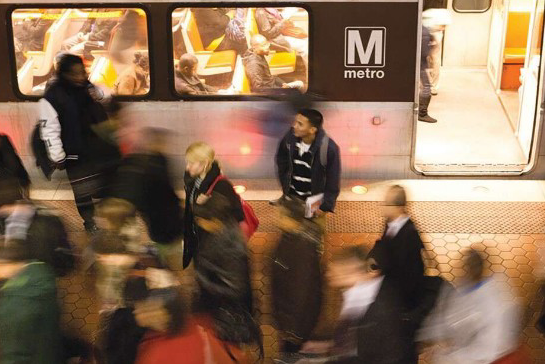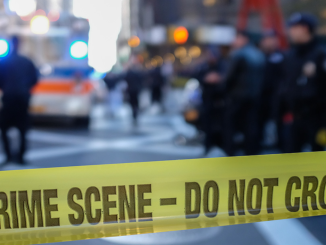
“It’s disgusting,” Metro rider Larry Howard told a Washington, D.C., television station about the people he sees getting on Metro buses and trains without paying the fare. “You notice about every day, going to work and coming in.”
Howard is right. You can hardly miss all the riders who are skipping out on paying their fare to ride Metro these days. Some estimates place the number of fare jumpers as high as 34% for some routes.
It wasn’t always this way. It used to be a crime to ride the Metro without paying, but that all changed in 2017 after a series of high-profile events led the district’s council to decriminalize fare evasion.
In one case, a Howard University student originally stopped for fare evasion was eventually detained in handcuffs after he resisted arrest. “This young man has been convicted of resisting arrest on the basis of a non-crime,” activist Carlean Ponder said. “How absurd is that?”
Except that isn’t true — at the time, fare-jumping was a crime, and police had every right to enforce the law. If society doesn’t enforce rules against bad behavior, more people will behave badly. And this is exactly what has happened on the Metro.
Since Metro decriminalized fare-jumping, making it a civil offense only, arrests for fare-jumping have fallen to zero in the district, while the cost of lost revenues from fare-jumping has skyrocketed to an estimated $25 million annually.
“The region needs to decide what we want Metro to be, and fare policy should be part of the conversation,” Metro CEO Randy Clarke said last week, announcing a new plan to deter fare evasion. “Many people have mentioned going to a fare-free model, but fare-free does not mean free. There are costs associated with running the community’s transit system, and therefore, the necessary revenues must exist to deliver the services the community needs.”
Clarke is right that the region needs to make a decision. Either fare-jumping is an acceptable behavior other riders need to learn to tolerate (and pay for), or it is an unacceptable behavior that should be punished with arrests.
Democrats love to put on a compassionate face when it comes to such misbehavior as fare-jumping and illegal border-crossing, which they also want to decriminalize. But when the consequences of their decisions not to punish bad behavior lead to more bad behavior, they always act surprised. They’ll be even more surprised when voters find new leaders who will enforce the law instead of casting it aside.
* Article from: The Washington Examiner


